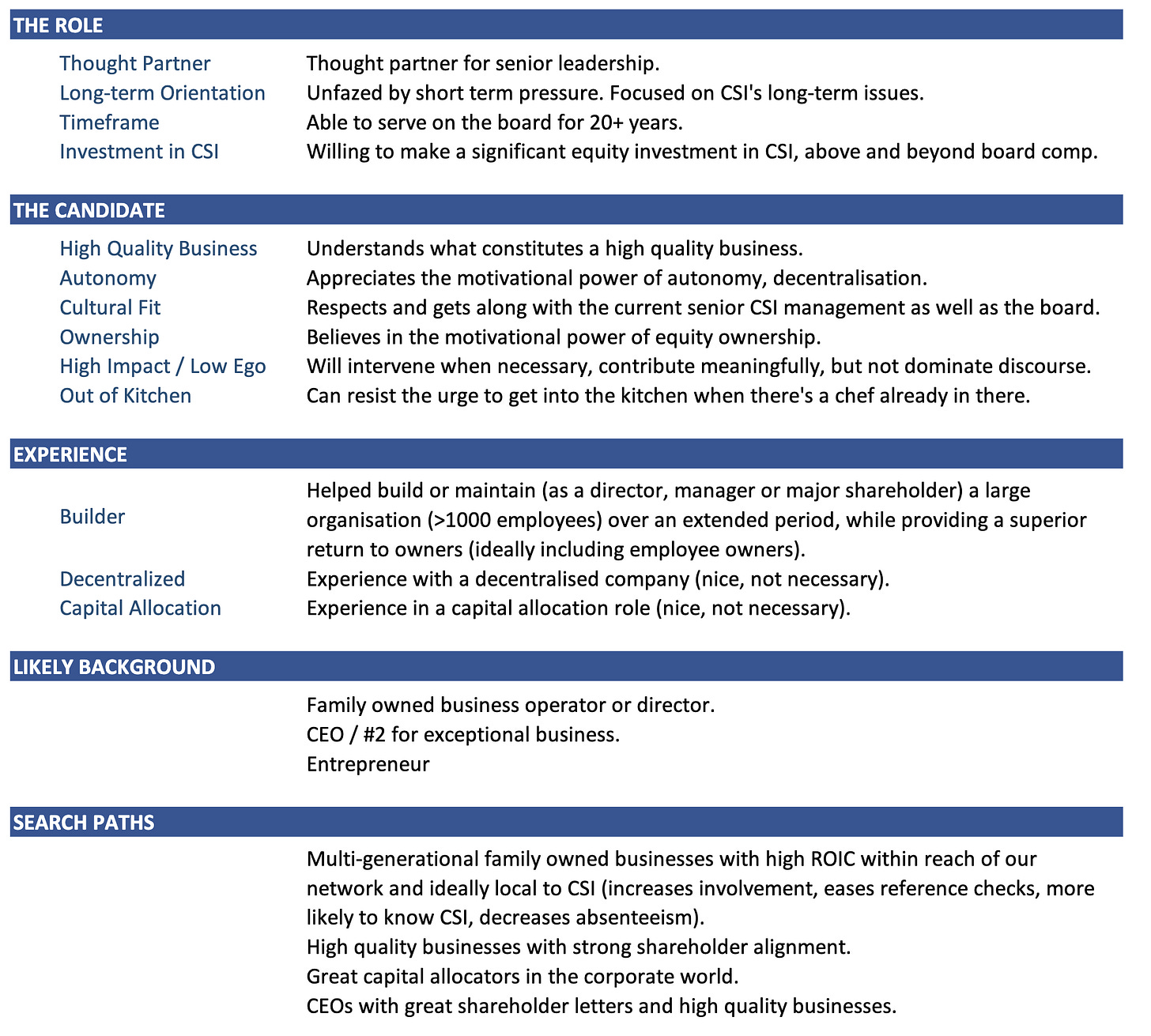"Everything that can be decentralized, will be decentralized." - Johnston’s Law
Decentralization stole my heart a long time ago. In the Catholic world, it’s called subsidiarity. Decisions should be made at the lowest level possible.
This principle has worked in lots of contexts. Investing is one.
For years, Mark Leonard at Constellation Software has been crushing it by buying hundreds of small companies and letting managers run them.
They compounded capital at >30% for a decade. They’ve seen a drop, but are still in the 20s. That means $10k at the IPO in 2006 would be ~$450k (I didn’t do the exact math).
For a long time, I thought I wanted to do something similar in ecommerce.
Then, when I saw the silver tsunami, and the big business transfer attached to it, I realized I wanted to do something similar in any sector at all!
Right now, I’m working on a pre-hiring training program to help new employees catch our DNA. In research for that, I went back to Constellation’s letters.
While Constellation stopped writing annual letters in 2018, the wisdom there is worth rediscovering.
Without further ado, here are this week’s highlights!
Source: Constellation Software President’s Letter 2017
I can think of only two really compelling reasons why a high-quality candidate would want to serve on a board and commit hundreds of hours per year to the task: 1) it is a way to invest a significant portion of your net worth and be able to watch it closely, and 2) you can learn and apply those learnings to your own career and investments.
I try to make sure that sycophants, spin-doctors, and mercenaries don’t survive in Constellation’s senior ranks. Harder, but not impossible, is helping identify and remove hidebound managers who rely upon habit and folklore to run their businesses rather than rational enquiry and experimentation.”
At some point, transition from analyst or knowledge worker into a leader of people. I find there is no magic to managing and leading. If you are smart,work harder than everyone else around you, treat people fairly, do not ask them to do anything you would not or have not done, share the credit, keep learning and keep teaching, then pretty soon you have followers. If you make sure that the team members are intelligent, energetic,and ethical people with whom you would want to work for the rest of your career, it won’t be long until you are running one of our BU’s [Business Units, i.e. company]. Whatever vertical you end up in, that specialisation, that focus, will require a multi-year effort to build a trusted network of employees, customers, other industry participants, and even competitors. (Emphasis mine)
Successful Craftsmen can be autocratic or consultative, brilliant or average intelligence, introverted or extraverted, mercurial or imperturbable. Lots of different personalities and styles work. Successful Compounders have no choice but to be (or become) more hands-off and trusting. They can be curious and driven, but they can’t be directive. They can nurture,goad and suggest, but they can’t order. No PM can personally know the customers, products, employees, and competitors sufficiently well across multiple BU’s in different geographies and verticals,to make the critical decisions required at the BU level.
Last but not least, the Constellation search criteria for board members was too good to pass up. (You can find the original on page 10)



